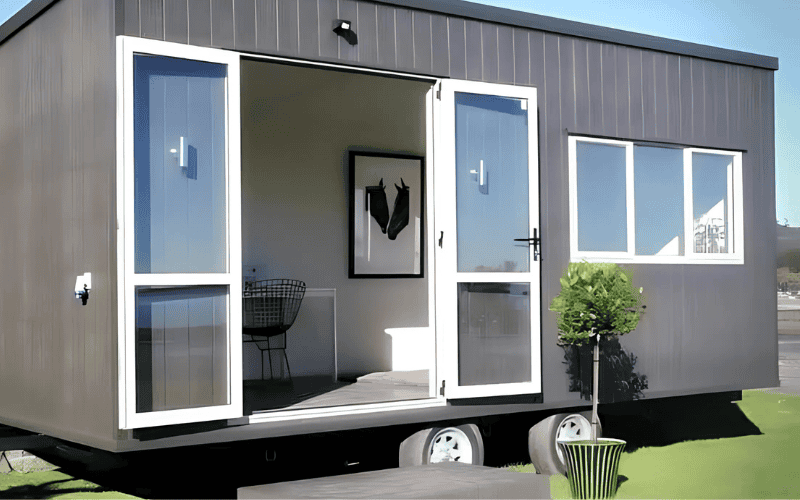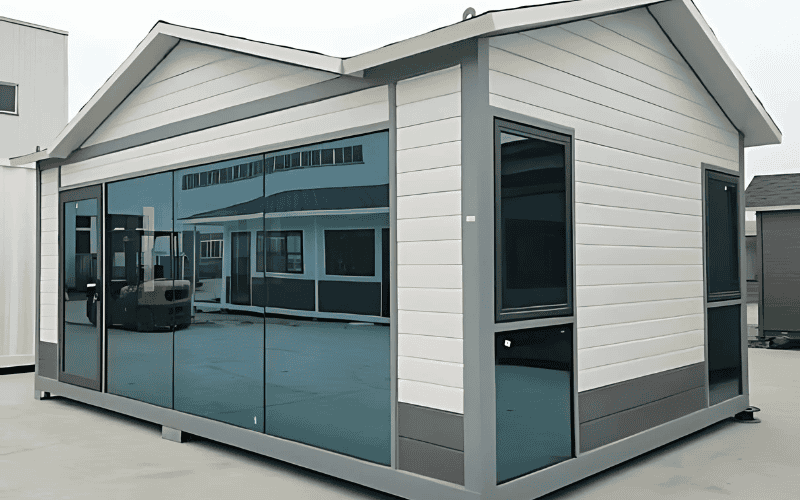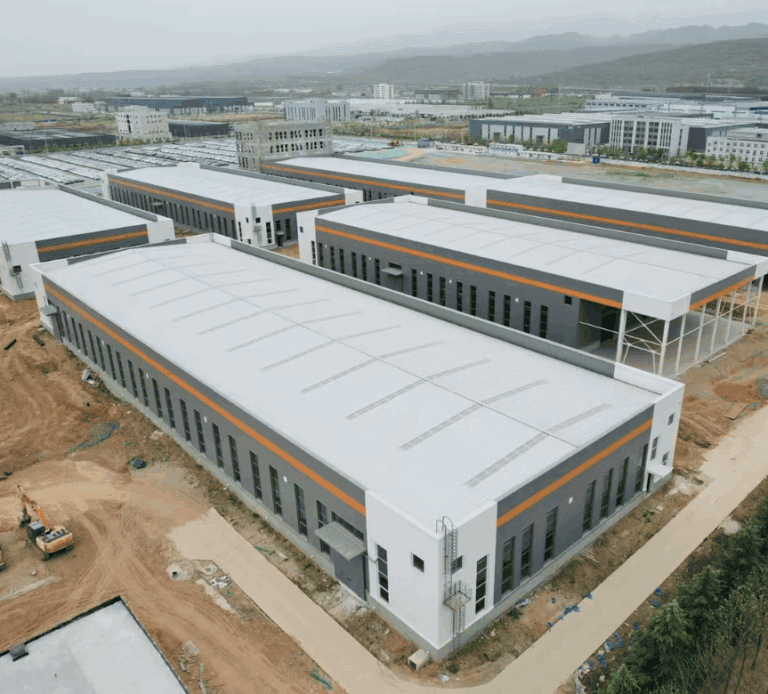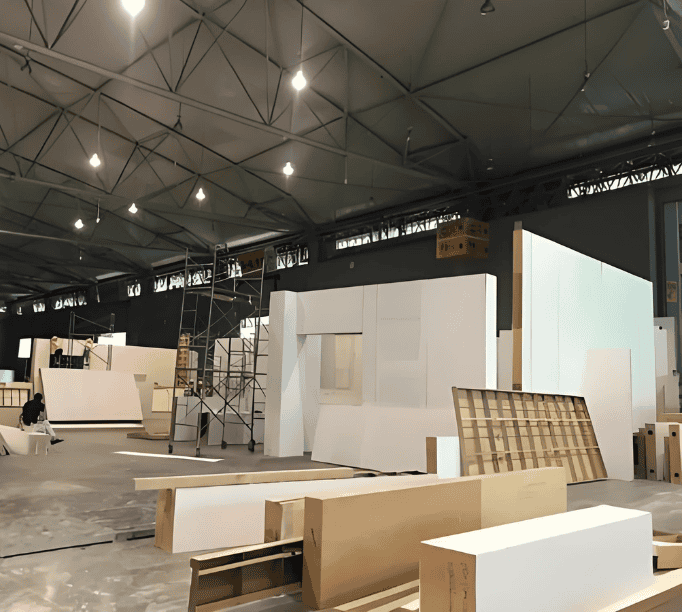Are you wondering about the differences between modular homes, mobile homes, and trailers? Whether you’re looking for long-term stability, affordability, or flexibility, understanding how these housing options compare is crucial to making the right choice.
In this article, we’ll break down the key differences in cost, construction, design, and mobility to help you decide which one best fits your needs. By the end of this guide, you’ll have a clear picture of which option works best for your lifestyle, budget, and long-term goals.
What is Modular Home?
A modular home refers to a prefabricated house that is constructed in various sections within a factory and subsequently transported to the designated location for assembly. It is typically placed on a permanent foundation and complies with strict building codes and standards, offering a high level of quality and durability.
Modular homes can be highly customized to suit individual preferences, offering various sizes and designs, making them suitable for long-term living. Their advantages include faster construction time, cost-efficiency, and greater durability and comfort compared to other housing options.
What is Mobile Home?
A mobile home is a prefabricated dwelling constructed on a chassis equipped with wheels, allowing it to be transported to different locations. It is designed to be relocated and is commonly used for those seeking flexible living options.
Due to their generally lower cost, mobile homes are often a favored option for individuals or families who are mindful of their budget. While they offer reasonable comfort, mobile homes generally do not have the long-term durability of modular homes, and they are more suited for medium-term living rather than permanent residency.
What is a Trailer?
A trailer is a highly portable living unit, often used for travel, vacationing, or temporary accommodation. Trailers are typically simple structures with limited space, focusing on convenience and low cost.
They lack the durability of modular homes and are not designed for extended periods of occupancy. The primary benefits of trailers are their mobility and low cost, making them ideal for people who need temporary housing, such as travelers or campers.

Modular Home vs Trailer vs Mobile Home: Key Differences
1. Construction & Durability
Modular Homes
- Construction: Built in factory sections and assembled on-site. Placed on a permanent foundation.
- Durability: Highly durable, built to last for decades. Designed to withstand a range of weather conditions and comply with rigorous building codes to ensure suitability for long-term occupancy.
Trailers
- Construction: Lightweight and portable, often mounted on a chassis with wheels. Built for temporary or recreational use.
- Durability: Not built for long-term durability; exposure to the elements can cause wear and tear over time, making them less suitable for permanent living.
Mobile Homes
- Construction: Built on a movable chassis, with wheels for mobility. Usually constructed with lighter materials than modular homes but still durable enough for long-term use.
- Durability: More durable than trailers but generally not as long-lasting as modular homes. Proper maintenance is needed for longevity.
2. Cost
Modular Homes: Higher upfront cost due to quality materials, customization, and permanent foundation. While more expensive initially, modular homes are cost-effective in the long run due to durability, energy efficiency, and low maintenance.
Trailers: The most affordable option, making it accessible for those on a tight budget. Low initial investment but higher long-term maintenance costs, especially if moved frequently. Depreciates in value over time.
Mobile Homes: More affordable than modular homes, but generally more expensive than trailers. They offer more value than trailers in terms of comfort and durability, but their value depreciates faster than modular homes.
3. Design & Customization
Modular Homes: Highly customizable with diverse floor plans, finishes, and layouts, it offers a broad spectrum of design choices tailored to homeowners seeking a personalized and premium living environment.
Trailers: Limited customization; usually comes in standardized layouts. Minimal customization options, typically functional rather than aesthetic.
Mobile Homes: There are some customization options available, albeit not as extensive as those offered by modular homes. Offers more design flexibility than trailers but less than modular homes, usually within a set range of models and finishes.
4. Mobility
- Modular Homes: Stationary once placed on a permanent foundation. Relocating a modular home is both complex and costly, rendering it impractical for moving after installation. It is ideal for those who seek stability and a long-term living arrangement.
- Trailers: Being highly mobile and capable of being easily relocated, they are perfect for individuals who require flexibility in their living arrangements. Ideal For Temporary or seasonal use, traveling, or mobile living.
- Mobile Homes: Designed for relocation, though moving them can be costly and complicated. They offer mobility but are less flexible than trailers. Ideal For Those who need some mobility but still want a more permanent living space than a trailer.

5. Maintenance Requirements
Modular Homes
- Maintenance: Requires less frequent maintenance due to high-quality construction and durable materials. Regular care, such as occasional repainting or landscaping, may be needed, but the overall maintenance is minimal.
- Longevity: With proper maintenance, modular homes can last for decades, requiring only minor upkeep.
Trailers
- Maintenance: Higher maintenance due to their lightweight structure and exposure to the elements. Components like roofing, seals, and wheels need regular attention. Frequent relocations can increase wear and tear.
- Longevity: The lifespan of trailers is shorter, often requiring more upkeep to remain functional.
Mobile Homes
- Maintenance: Mobile homes require more maintenance than modular homes due to their lighter construction. Common maintenance includes checking the foundation and ensuring the chassis and wheels are in good condition.
- Longevity: Requires consistent upkeep, especially if relocated. Mobile homes generally last longer than trailers but not as long as modular homes.
6. Energy Efficiency
Modular Homes
Energy Efficiency: Highly energy-efficient due to modern insulation, energy-efficient windows, and high-quality construction. They are often built with green building materials and design features to optimize energy use, reducing utility costs over time.
Sustainability: Many modular homes are designed with sustainability as a key consideration, incorporating eco-friendly options such as solar panels, energy-efficient appliances, and water-saving features.
Trailers
Energy Efficiency: Less energy-efficient compared to modular homes due to their lightweight construction and older insulation standards. They typically require more energy for heating and cooling, resulting in elevated utility bills.
Sustainability: They are generally not designed with environmental considerations in mind, featuring minimal insulation which contributes to higher energy consumption.
Mobile Homes
Energy Efficiency: Mobile homes are generally less energy-efficient than modular homes but can be more efficient than trailers. They may have some basic insulation and energy-saving features, but they don’t offer the same energy efficiency as modular homes.
Sustainability: Like trailers, mobile homes are less focused on sustainability but may have options for energy-efficient upgrades.
7. Resale Value
Modular Homes
- Modular homes generally retain their value better than mobile homes or trailers, especially if well-maintained. Because they are built to last and are often indistinguishable from traditional homes, they can appreciate in value over time.
- Being a more permanent and customizable option, modular homes appeal to a broader market, helping them maintain or even increase in value.
Trailers
- Trailers typically depreciate over time. Due to their temporary nature and mobility, they do not hold value well on the real estate market.
- The resale market for trailers is limited, and their value generally decreases as they age.
Mobile Homes
- Mobile homes tend to depreciate over time, though they usually retain more value than trailers. However, if situated on land that they own, their value may surpass that of a trailer.
- Mobile homes are easier to sell than trailers, especially when placed on a permanent foundation or in communities where mobile homes are common.
8. Building Code Compliance
Modular Homes: Must meet the same local building codes as site-built homes, following strict regulations for structural integrity, safety, and environmental standards. Designed to adhere to all building codes and zoning regulations to ensure long-term durability and compliance.
Trailers: Built to lower standards, trailers only need to meet specific mobile home regulations, not local building codes for permanent housing. They generally lack the safety and durability required for long-term use.
Mobile Homes: Subject to federal standards under HUD (U.S. Department of Housing and Urban Development), but may not meet local building codes for permanent housing. Local zoning laws may restrict their placement unless affixed to land. They meet safety standards but may not meet full foundation or housing requirements unless secured on a permanent site.
Related Reading: Modular vs Manufactured vs Mobile
Modular Home vs Trailer vs Mobile Home: Which one is right for you?
- Budget: If you have a limited budget, trailers and mobile homes are more affordable and may suit your needs. If you are looking for a long-term investment, a modular home is a better choice because it is durable and has a higher resale value.
- Long-term living vs. temporary needs: If you plan to live long-term, a modular home may be the best choice, providing comfort, stability, and value. For those who need a temporary or flexible living space, a trailer or mobile home may be a better fit.
- Lifestyle: If you need a customized living space and prefer a stable, permanent home, a modular home is ideal. If you value flexibility and mobility and prefer a less permanent setup, a mobile home or trailer may be a better fit.
Select a housing option that aligns with your present requirements while taking into account future possibilities. Make sure your choice fits your long-term goals, whether it’s stability, customization, or flexibility in your living situation.
Making the Right Choice for Your Future
Choosing between a modular home, mobile home, or trailer isn’t just about selecting a place to live—it’s about making a decision that aligns with your lifestyle, budget, and long-term goals. By evaluating factors such as cost, durability, comfort, and flexibility, you can make an educated decision that will genuinely benefit your future.
Whether you’re looking for a permanent, customized space that grows with you, or a flexible, affordable solution for temporary needs, you now have a clearer understanding of which option fits your unique situation. You’ve gained the knowledge to confidently choose what’s best for your life and your wallet, avoiding uncertainty and unnecessary regret.
Ready to explore your ideal living option? Reach out to us today, and let us guide you in choosing the perfect solution for your needs. At SteelPRO PEB, we specialize in modular homes designed for comfort, durability, and value. Start your journey with us—because the right home can transform your life.
FAQs
Is it a trailer a mobile home?
No. A trailer is a portable living unit, often used for short-term or recreational purposes. A mobile home is a prefabricated home designed for long-term living but is built on a chassis with wheels for mobility.
Is a modular home a trailer?
No, a modular home is not a trailer. Modular homes are factory-built homes assembled on-site on a permanent foundation, designed for long-term living, while trailers are mobile and often temporary.
Do modular homes depreciate?
Modular homes typically depreciate less than trailers or mobile homes. Over time, they retain more value due to their robustness and adherence to building codes. However, like all homes, they may still depreciate, but at a slower rate compared to other prefabricated homes.

